Post
A catch
Save a catch to start your fishing logbook. You will be able to to share it with the community if yo want!
A fishing trip
Post an ad to go fishing with other fishermen
Save a catch to start your fishing logbook. You will be able to to share it with the community if yo want!
Post an ad to go fishing with other fishermen
Share a thought, a question with the community
My favorite cities
×Join our 1 fisherman in Whitesboro in Cape May. The fishing forecast is currently 3.2. The most caught fishes here are the snook fish, the brill fish, the horse eye jack fish and black bream fish. Come try the most famous fishing techniques like the dive fishing, fishing with traps, big game fishing or fishing for sea bass while surfcasting.
Our fishing forecast of Whitesboro indicates the best time to go fishing in this city.
The Snook fish
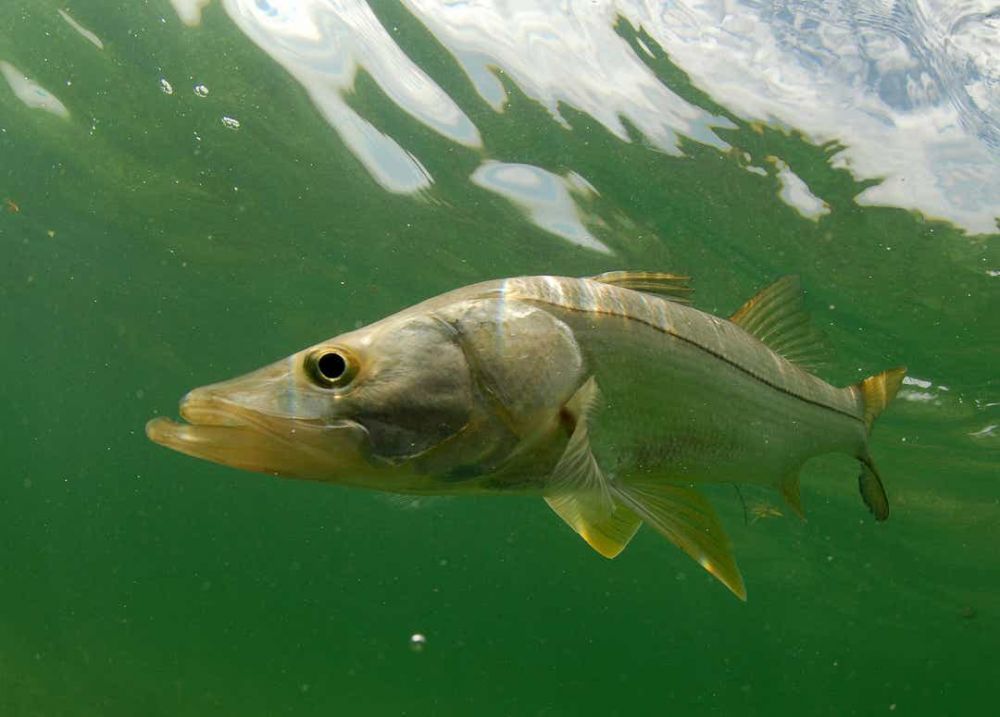
The Snook fish belongs to the Centropomidae family. Snook can measure between 0.14 and 140 cm long (average 50 cm) and weigh up to 23.3 kg. It can live up to 20 years. They spawn in June and July and from August to October. The fishing season is open in March and April and again from September to November. The snook fish has a slim body and a distinct lateral line. It has a high divided dorsal fins. The anal spines are relatively short. The snook fish has an inclined forehead with a large mouth and a protruding lower jaw. The adult snook fish can reach more than 120 cm in total length, which is larger than any other species in this family. The color of the common snake is golden yellow with a distinct black lateral line and pale yellow pelvic fins.
The Snook fish is a famous fish you can catch in Whitesboro.The Brill fish
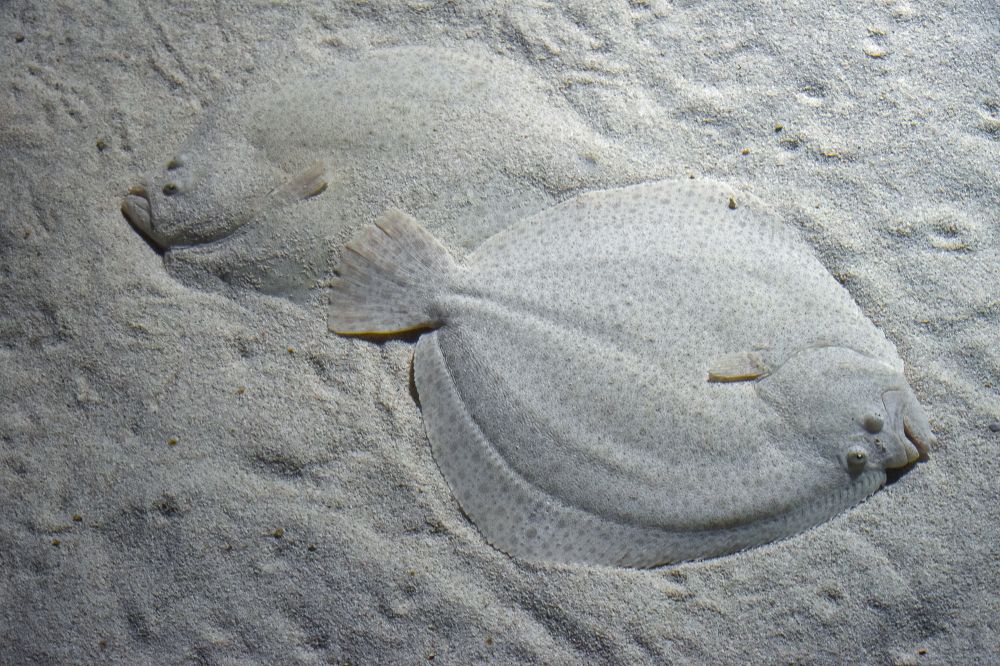
The brill fish belongs to the Scophthalmidae family. The minimum size of capture is 30 cm but can reach 75 cm for 6 kg. He can live up to 3 years. It breeds from late spring to early summer. The female can lay up to 15 million eggs. It can be fished all year. The brill has an oval body. It rests on its right side and has its left side. Thus, when placed with the head facing left, both eyes are located above the mouth. Its common name of brill comes from a particularity of its dorsal fin, whose origin is far in front of the eye and whose first rays are free and branched. The distance between the two eyes is greater than the diameter of one eye. The lateral line is very curved at the pectoral fin. As with many flatfish, the coloring is variable and depends on the biotope. The brill is indeed capable of homochromia, i.e. to match the color of the background. The coloring is rather brown, more or less speckled, and also varies according to the environment on a live fish. It has many round spots whose edges are incomplete rings of darker colors. The blind side is whitish.
The Brill fish is a famous fish you can catch in Whitesboro.The Horse Eye Jack fish
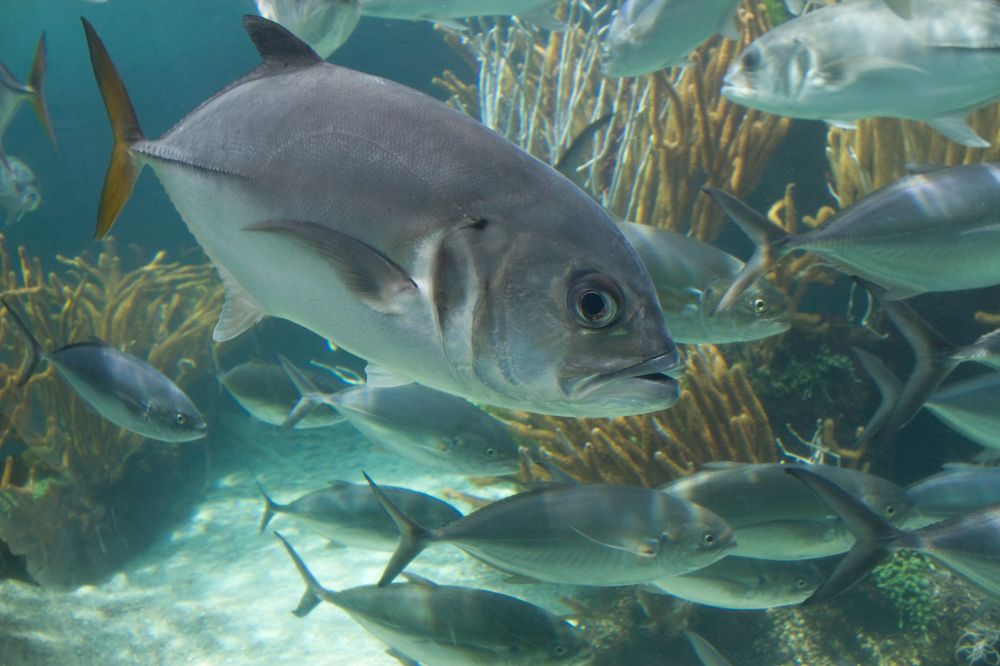
The Horse Eye Jack fish belongs to the Carangidae family. It can reach up to 100 cm for 13,33 kg. It can live for more than 18 years. It breeds from June to August. It can be fished all year. The backbones located on the body of Horse-Eye Jack are 8 to 9. The soft rays are approximately 20 - 22 located on the small body of the Horse-Eye jack. There are a few anal spines and about 17 soft anal rays. The pectoral fins are free of spots or marks and have a remarkably well constructed shape. Their bone plates are blackish or sometimes even stone grey. The caudal fin on the body of the Horse-Eye jack is yellow in color. Younger Horse-Eye jacks are brighter in color and have large, very dark stripes on the body. The shape of Horse-Eye jack is similar to that of other fish in the Carangidae family, but the main difference is the shape of their heads. The head of the horse's eye whistle is clearer and more pronounced than that of other fish in the same family. The Horse-Eye jack fins are darker in color and some of them even have black fins. The Horse-Eye fish is known as the big-eyed fish, mainly because of its prominent and prominent eyes that are located at the front and center of the fish's head.
The Horse Eye Jack fish is a famous fish you can catch in Whitesboro.Black Bream Fish
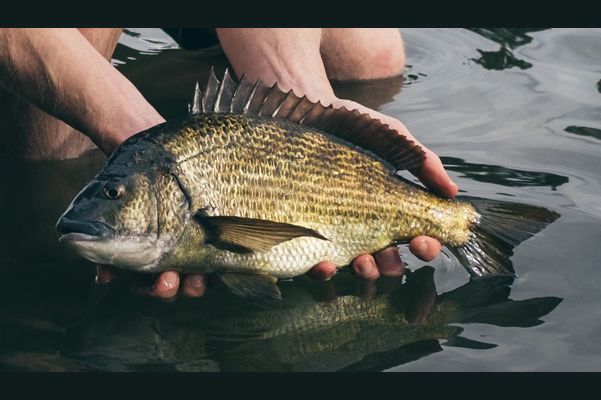
The Black breamfish, also known as Acanthopagrus butcheri, is a Sparidae. In general, its average size is 15 to 35 cm and its weight is 500 g to 2.5 kg. However, some individuals can reach up to 60 cm and 4 kg. The black bream has a lifespan of 27 years. Its spawning period is between August and January. It can have up to 300,000 spawn each season. It is not hard to catch and offer a little resistance. The Black bream has a high body and relatively compressed laterally, with symmetrically curved dorsal and ventral fins. The mouth is of moderate size compared to the body and has six incisors in the front of the lower and upper jaws. The body is covered with large scales that can be cycloid or slightly ctenoid. The head is essentially flake-free, except for the lids. A flake sheath covers the soft ray bases of the dorsal, anal and caudal fins. The Black Bream is silvery, from golden brown or bronze to grey-green on the back as well as on the sides with sometimes greenish reflections, depending on its habitat. The belly is white. The fins are all dark, with black borders. The caudal fin is often dark olive-brown.
Black Bream Fish is a famous fish you can catch in Whitesboro.The Tripletail fish
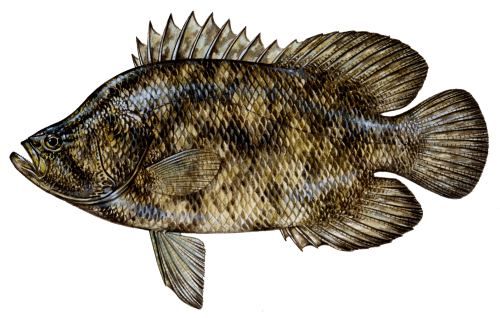
The Tripletail fish belongs to the Lobotidae family. The tripletail is 89 cm long and weighs 18.6 kg. However, the average weight is between 1 and 7 kg. The Tripletail have a lifespan of about 10 years. They spawn in summer. It can be fished all year round. The tripletail has small scales that extend over the dorsal, caudal and anal fins and a head profile that becomes more concave with age. The tripletail has a compressed and deep body, with a triangular head. The eyes are relatively small and the mouth is large. The bases of the dorsal and anal fins are flaked and the pectoral fins are shorter than the pelvic fins. The tripletail has soft, large and rounded dorsal, caudal and anal fins. This characteristic has given rise to the common name. Juveniles are marbled yellow, brown and black. Lying on the side at the surface of the water, a young tripletail looks like a floating mangrove leaf. Juveniles have white pectoral fins and a white border on the caudal fin. The adult tripletails have a variety of marbled patterns, ranging from dark brown to reddish brown or brown with a shade of grey.
The Tripletail fish is a famous fish you can catch in Whitesboro.Our fishing forecast of Whitesboro indicates the best time to go fishing in this city.
Our fishing forecast of Whitesboro indicates the best time to go fishing in this city.
Our fishing forecast of Whitesboro indicates the best time to go fishing in this city.
